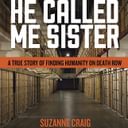
In her new book, Confronting the Death Penalty: How Language Influences Jurors in Capital Cases, Marshall University Anthropology Professor Robin Conley examines “how language filters, restricts, and at times is used to manipulate jurors’ experiences while they serve on capital trials and again when they reflect on them afterward.” Conley spent fifteen months in ethnographic fieldwork observing four Texas capital trials and interviewing the jurors involved. She analyzes the language used in those trials, as well as written legal texts, to gain a greater understanding of how jurors go about making the decision for life or death. She also explores the questioning jurors undergo as to their beliefs about the death penalty, characterizing it as “socialization into killing.” She writes that death penalty trials involve a number of communication practices — such as “dehumanizing references to defendants that stymie empathy between them and jurors, written and oral instructions that allow jurors to deny their personal involvement in defendants’ deaths” — that create distance between jurors and defendants and “deny the humanistic side of legal decision-making.” In the book’s conclusion, she writes of the importance of this type of language for the maintenance of the death penalty: “It is the words with which attorneys address potential jurors during voir dire, the written instructions on which jurors rely in the deliberation room, and the talk about defendants throughout the trial that maintain the persistent operation of the death penalty. By subverting other forms of experience, moreover, particular, authoritative modes of language allow jurors to send defendants to their deaths.”
(R. Conley, “Confronting the Death Penalty: How Language Influences Jurors in Capital Cases,” Oxford Studies in Language and Law, 2016.)



